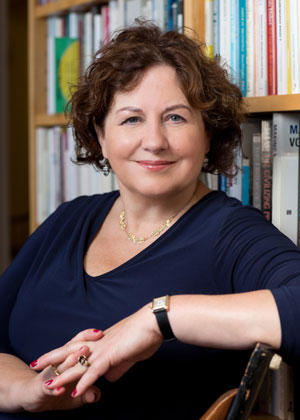 At the time of this writing, the world remains transfixed by the result of the American presidential election. Colleagues and friends beyond our borders who followed a particularly mercurial presidential campaign now speculate on what the future will bring. The global repercussions of what transpired on November 8 remain quite ill-defined and many colleagues fear the worst.
At the time of this writing, the world remains transfixed by the result of the American presidential election. Colleagues and friends beyond our borders who followed a particularly mercurial presidential campaign now speculate on what the future will bring. The global repercussions of what transpired on November 8 remain quite ill-defined and many colleagues fear the worst.
Although we are physically rooted here in Cambridge, our work has a decidedly global impact. Many of our 230+ Faculty Associates are deeply engaged in conversation with their peers in Europe, Asia, Africa, and Latin America—with the very colleagues whose work we read, to whom we send our graduate students, whom we meet at conferences, and whose books and papers we discuss. These scholars form an international community made of virtual networks whose members count on us to help them understand what is happening right now. And these individuals in turn help interpret the world for their own students and colleagues in their own national context. This is part of the Weatherhead Center’s core mission: making sense of reality for experts, the educated public, and policy makers in times of need.
In the fall and the spring—as was the case last year—we will provide over $900,000 to support the work of graduate and undergraduate students and over $1 million to support the research of faculty. This is possible because our core Faculty Associates serve on numerous peer review committees. And this is only one of the channels through which we feed the network of knowledge that is essential to understanding the ongoing global changes. We are thankful to them and to the WCFIA staff who make the organization work.
What else is new at the Center this fall? In late September, the WCFIA underwent a review by a team of distinguished colleagues from peer institutions. To quote from their report, “The Weatherhead Center carries with it enormous symbolic weight at Harvard, across the United States, and beyond…its leadership, its buy-in from faculty, and the enthusiasm and commitment of its increasingly diverse stakeholders are great strengths.” While such praise is comforting, we still have work to do. The Executive Committee recently met to consider the various recommendations from the reviewers, and they approved in principle a new Weatherhead Center Scholars Program and a new Weatherhead research clusters pilot project. Details for both will be forthcoming soon.
Pushing the reset button periodically is necessary if the WCFIA, founded at the height of the Cold War, is to continue to best perform at its mission of addressing important research questions ahead of the curve. This “reset” is essential given that knowledge production and distribution networks have diversified considerably since the creation of the Center. The world is changing, and the Weatherhead Center must change with it.
At the same time, we do not jettison the past but embrace it. On December 12, we celebrated the scholarly contribution of Joe Nye, former WCFIA director, to the field of international relations. A special Manshel Lecture and panel discussion in his honor acknowledged Joe’s groundbreaking research and the subsequent contributions of his many students.
We are proud to stand at the nexus between commemorating the past and forging an innovative future. There is room for both at the Weatherhead Center, and this inclusion makes us stronger.
Michèle Lamont
Center Director
Photo Credit: Martha Stewart
